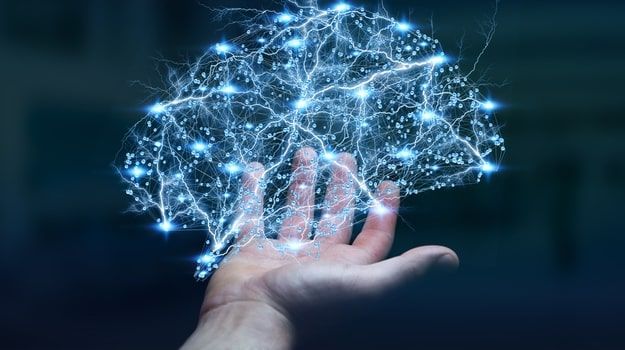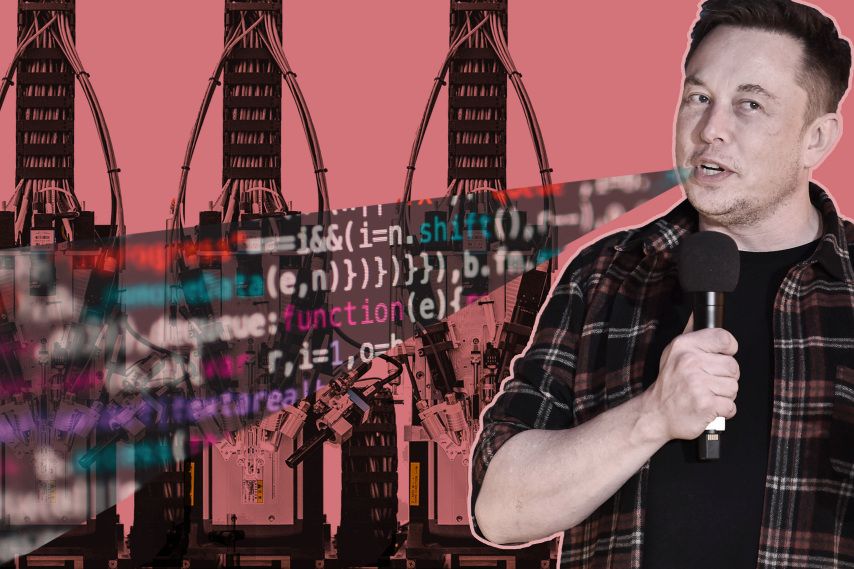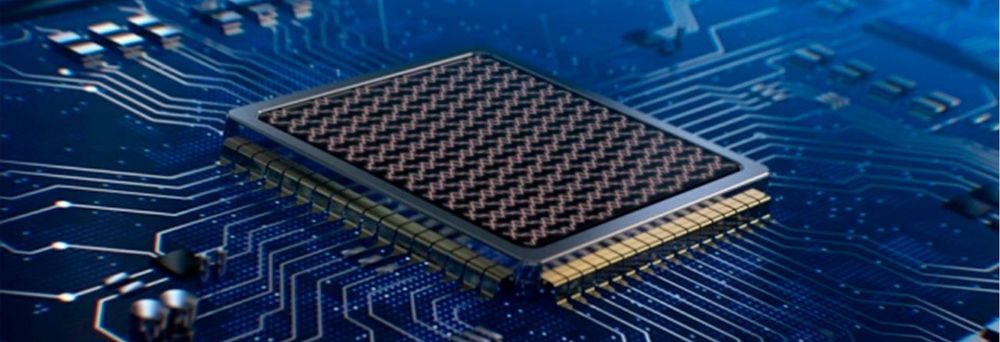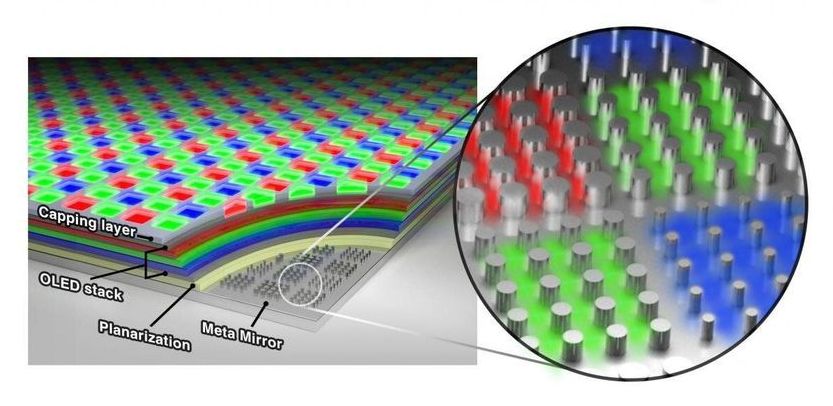Hackers can now reverse engineer updates or write their own custom firmware.


Dr. Lisa Su is set to unveil the first Big Navi GPUs today at 12pm ET (9am PT, 4pm UK).

CREATING ARTIFICIAL SKIES IN UNDERGROUND HABITATS ON MARS & MERCURY. This will be an interesting subject for much deliberation in the future: how to best create artificial skies in sealed habitats. Metamaterial vantablack is a surface so perfectly dark that if you stood in a room where the ceiling, walls and floor were covered with it, you would feel like you were floating in black space. Disneyland must get off its butt and create a big room like this. Now a new paint (not quite the opposite of vantablack as it claims) has been invented, which will reflect back nearly 100% of light hitting it, an interesting way to augment existing lighting in a building by painting the ceiling with the stuff.
And here is something which I told you before: if the human eye stares at a totally uniform color, with no discernable features it doesn’t know where to focus, and psychologically can see this as a kind of “sky.” Since there is nothing to focus on, the eye assumes it is the far away sky and focusses to infinity or goes into its least-energetic focusing mode, as in looking at a blank sky.
View a large computer screen with a totally uniform color, through a tube which blocks the edge of the screen from view. You already see this effect with this small experiment.
New paint reflects nearly all light hitting it, can help cool down space probes:
A team of scientists have created a white paint that’s so white, they say, that it reflects 95.5 percent of sunlight that reaches its surface.
Essentially, it’s the exact opposite of Vantablack, the substance that makes objects appear so dark, by absorbing close to 100 percent of light that hits them, that it’s as if you’re staring into a black hole.

We stored the light by putting it in a suitcase so to speak, only that in our case the suitcase was made of a cloud of cold atoms,” says physicist Patrick Windpassinger from Mainz University in Germany. “We moved this suitcase over a short distance and then took the light out again.
The storage and transfer of information is a fundamental part of any computing system, and quantum computing systems are no different – if we’re going to benefit from the speed and security of quantum computers and a quantum internet, then we need to figure out how to shift quantum data around.
One of the ways scientists are approaching this is through optical quantum memory, or using light to store data as maps of particle states, and a new study reports on what researchers are calling a milestone in the field: the successful storage and transfer of light using quantum memory.
The researchers weren’t able to transfer the light very far – just 1.2 millimetres or 0.05 inches – but the process outlined here could form the foundation of the quantum-powered computers and communication systems of the future.

“In a breakthrough study published on February 19th in Nature Biomedical Engineering, researchers connected neural dust implants reduced to 1.7 cubic millimeters to rat sciatic nerves. The implanted device, called the StimDust system, consisted of very few components, which will be scaled down for future applications. A piezoceramic ultrasonic transducer generated power allowing for wireless communication and stimulation. A capacitor stored any excess energy generated from ultrasonic beams. Bipolar stimulating electrodes directly interfaced with the nerve while a cuff attached to a small circuit-board allowed the device to adhere physically to the nerve. These components were sufficient to generate or record nerve-impulses. In anesthetized rodents, they elicited muscular contractions with the StimDust system.”
While Neuralink, Elon Musk’s startup-venture focused on creating a brain-computer interface, garners lots of coverage in the biotechnology space, other bioelectronics ventures continue innovating in this space.
iota Biosciences, a spin-off company from UC Berkley formed in 2017, made news two years ago by securing $15 million in Series A funding and again last year announcing a partnership with Astellas Pharma Inc. Bolstered by studies in rodents, iota Biosciences advances towards their vision. In a press release on their partnership, founders Jose Carmena and Michel Maharbiz commented:
We envision a future in which our ultra-small implantable devices will be used in combination with, or as an alternative to, conventional diagnostics and therapies. Through our collaboration with Astellas, we expect to make our innovative technologies available to patients around the world.
Carmena and Maharbiz are right on track, winning the prestigious 2017 McKnight Technological Innovation in Neuroscience Award. While electric stimulation devices for the heart, cochlea and brain already exist, Carmenas and Maharbiz recognized the key limitations of existing technologies.

Rock-climb without fear. Play a symphony in your head. See radar with superhuman vision. Discover the nature of consciousness. Cure blindness, paralysis, deafness, and mental illness. Those are just a few of the applications that Elon Musk and employees at his four-year-old neuroscience company Neuralink believe electronic brain-computer interfaces will one day bring about.
None of these advances are close at hand, and some are unlikely to ever come about. But in a “product update” streamed over YouTube on Friday, Musk, also the founder of SpaceX and Tesla Motors, joined staffers wearing black masks to discuss the company’s work toward an affordable, reliable brain implant that Musk believes billions of consumers will clamor for in the future.
“In a lot of ways,” Musk said, “It’s kind of like a Fitbit in your skull, with tiny wires.”

Optical computing, which uses photons instead of electrons, has been one of the great promises of this field for decades.
According to Moore’s law —actually more like a forecast, formulated in 1965 by Intel co-founder Gordon Moore— the number of transistors in a microprocessor doubles about every two years, boosting the power of the chips without increasing their energy consumption. For half a century, Moore’s prescient vision has presided over the spectacular progress made in the world of computing. However, by 2015, the engineer himself predicted that we are reaching a saturation point in current technology. Today, quantum computing holds out hope for a new technological leap, but there is another option on which many are pinning their hopes: optical computing, which replaces electronics (electrons) with light (photons).
The end of Moore’s law is a natural consequence of physics: to pack more transistors into the same space they have to be shrunk down, which increases their speed while simultaneously reducing their energy consumption. The miniaturisation of silicon transistors has succeeded in breaking the 7-nanometre barrier, which used to be considered the limit, but this reduction cannot continue indefinitely. And although more powerful systems can always be obtained by increasing the number of transistors, in doing so the processing speed will decrease and the heat of the chips will rise.
The hybridization of electronics and optics
Hence the promise of optical computing: photons move at the speed of light, faster than electrons in a wire. Optical technology is also not a newcomer to our lives: the vast global traffic on the information highways today travels on fibre optic channels, and for years we have used optical readers to burn and read our CDs, DVDs and Blu-Ray discs. However, in the guts of our systems, the photons coming through the fibre optic cable must be converted into electrons in the microchips, and in turn these electrons must be converted to photons in the optical readers, slowing down the process.

Extreme events occur in many observable contexts. Nature is a prolific source: rogue water waves surging high above the swell, monsoon rains, wildfire, etc. From climate science to optics, physicists have classified the characteristics of extreme events, extending the notion to their respective domains of expertise. For instance, extreme events can take place in telecommunication data streams. In fiber-optic communications where a vast number of spatio-temporal fluctuations can occur in transoceanic systems, a sudden surge is an extreme event that must be suppressed, as it can potentially alter components associated with the physical layer or disrupt the transmission of private messages.
Recently, extreme events have been observed in quantum cascade lasers, as reported by researchers from Télécom Paris (France) in collaboration with UC Los Angeles (USA) and TU Darmstad (Germany). The giant pulses that characterize these extreme events can contribute the sudden, sharp bursts necessary for communication in neuromorphic systems inspired by the brain’s powerful computational abilities. Based on a quantum cascade laser (QCL) emitting mid-infrared light, the researchers developed a basic optical neuron system operating 10,000× faster than biological neurons. Their report is published in Advanced Photonics.

Attention readers, if you are using Google Chrome browser on your Windows, Mac, or Linux computers, you need to update your web browsing software immediately to the latest version Google released earlier today.
Google released Chrome version 86.0.4240.111 today to patch several security high-severity issues, including a zero-day vulnerability that has been exploited in the wild by attackers to hijack targeted computers.
Tracked as CVE-2020–15999, the actively exploited vulnerability is a type of memory-corruption flaw called heap buffer overflow in Freetype, a popular open source software development library for rendering fonts that comes packaged with Chrome.

Ultra high-res displays for gadgets and tv sets may be coming. 😃
By expanding on existing designs for electrodes of ultra-thin solar panels, Stanford researchers and collaborators in Korea have developed a new architecture for OLED—organic light-emitting diode—displays that could enable televisions, smartphones and virtual or augmented reality devices with resolutions of up to 10,000 pixels per inch (PPI). (For comparison, the resolutions of new smartphones are around 400 to 500 PPI.)
Such high-pixel-density displays will be able to provide stunning images with true-to-life detail—something that will be even more important for headset displays designed to sit just centimeters from our faces.
The advance is based on research by Stanford University materials scientist Mark Brongersma in collaboration with the Samsung Advanced Institute of Technology (SAIT). Brongersma was initially put on this research path because he wanted to create an ultra-thin solar panel design.